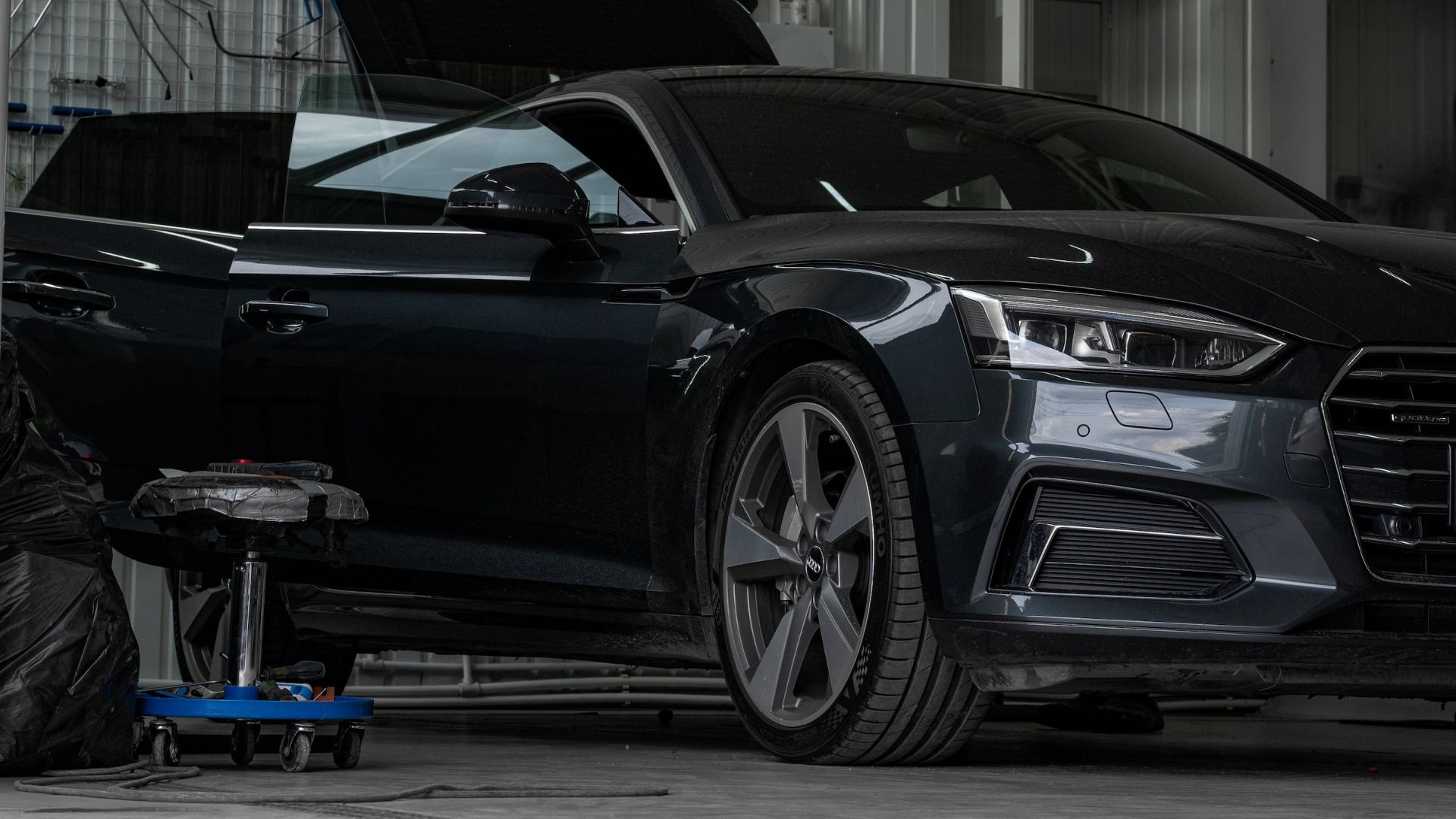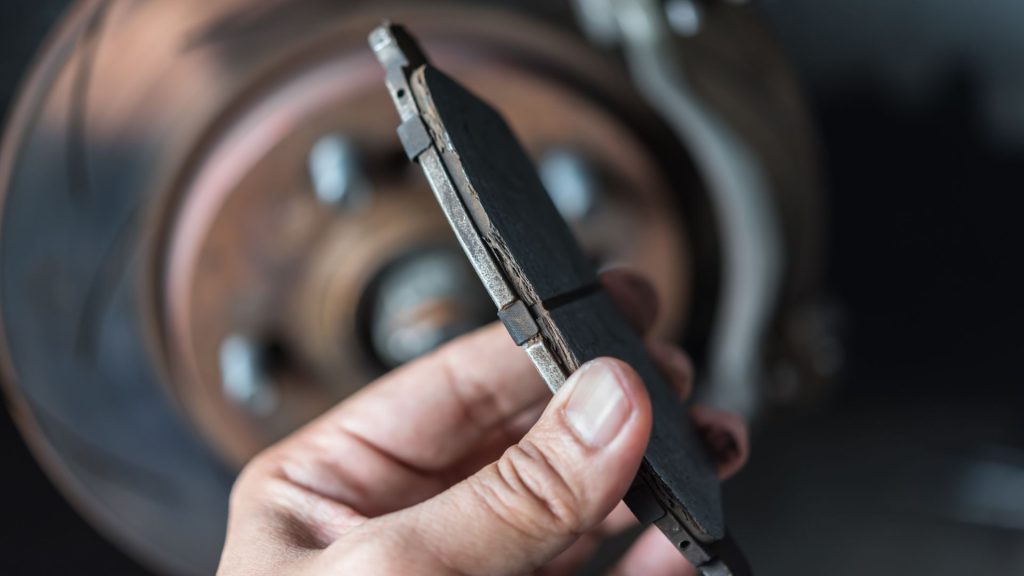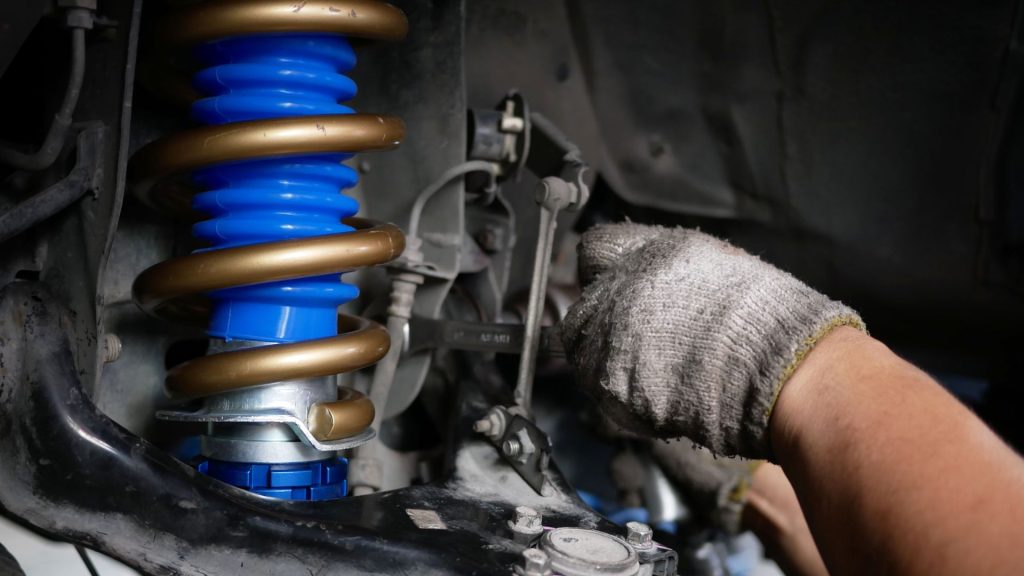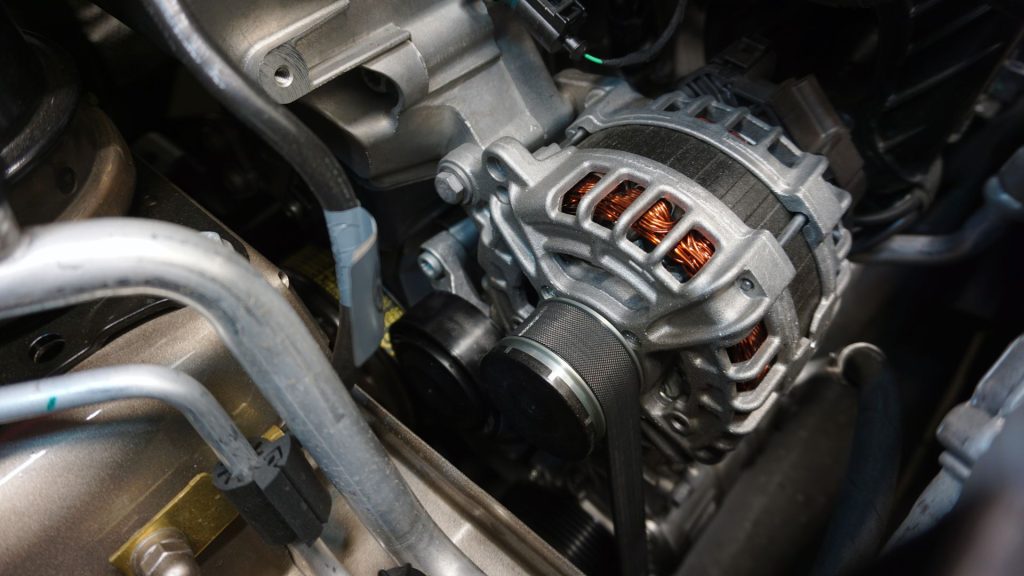Squeaking noise while driving but not brakes applied
Discover the mysterious cause of that squeaking noise while driving without engaging the brakes.

Does your car make a squeaking noise while driving, but stop when brakes are applied? Most times, car noises whether screeching, whistling, rattling, or squeaking mean trouble. These noises are often an indication of a fault in the cars. The faults in question can be either minor or major problems.
If you notice that your car makes a squeaking noise while driving, but no brakes are applied, you should have the car checked and find out the exact problem. Some drivers ignore the noise from their car and this could lead to even bigger issues. The most common cause of squeaking noise from vehicles are brake-related problems.
However, there are a host of other problems that can make your car squeak while driving. In this article, we discuss the common and not so common problems that can cause your car to squeak. We’ll also talk about how to prevent it, fix some of the problems, and how squeaking noise affects your car insurance.
There are also minor cases where the squeaking noise is not permanent and it clears off after some time. Contaminants like rust and water in your brake pads can cause a temporary case of squeaking noise. Now, let’s consider some other things that can make your car squeak.
Why does my car squeak when I drive but stop when I brake?
As we’ve already established, there are many things that can cause your car to squeak when driving. It’s common to have a squeaky brake pedal, but the noise may be worrying while driving. In a lot of these cases, the squeaking noise stops when you apply brakes. Sometimes, you get the noise when you hit the brakes for the first time of the day. Other times, the noise becomes prominent when you’re about to stop the car. In minor cases, the squeaking noise is not permanent and it clears off after some time. For example, having contaminants like rust and water in your brake pads can cause a temporary case of squeaking noise. Now, we’ll consider some of the problems that can make your car squeak.
Low brake pads

Your brake pads are designed to grab the brake rotors on each side as they move. These brake pads are made from different materials and with time, the pads get worn out. Before the brake pad material gets completely worn out, the pad indicators start squeaking.
If your brake pads are old, you will notice the squeaking noise when you’re driving, but once you apply the brakes, the noise stops. You’ll also get the noise while reversing the car. This squeaking noise is mostly low-pitched and it’s a warning that you need to change your brake pads. If you ignore the squeaks, your brake pads will completely wear out and then you’ll have to deal with a terribly loud grinding noise.
Glazed brake pads
Glazing is another brake pad problem that can cause your car to squeak. Glazed brake pads are caused by overheating. If you live in hot areas with steep hills, this might be a common problem. While driving down a hill with your brakes applied, the brakes can get overheated.
Your brakes can also get overheated if you put on emergency brakes while driving for a long time. Basically, anything that places the brakes under pressure for too long can cause overheating. Over time, the surface of the brake pads gets slippery and they are unable to properly hold onto the rotors.
Remember that the brake pads are designed to grab the rotors. Glazed brake pads can cause a squeaking noise from the brake pads sliding on the rotors. With glazed brake pads, the squeaking noise comes when you’re slowing down and when you’re about to stop the car. The squeaking noise from this problem is similar to the noise from low brake pads, so they can be easily confused.
Brake pad contamination
Your brake pads have little cracks in them that can house contaminants. These contaminants include water, dust, rust, and rocks, and your brakes can easily get contaminated. For instance, if you drive on a dusty road frequently, your brake pads can get contaminated.
Also, this can happen if you drive into a water puddle. Once your pads are contaminated, your car can start making squeaking noises. Fortunately, squeaks caused by foreign contaminants are temporary. As soon as the contaminants leave your brake pads, the noise also stops.
Suspension problems

Suspension systems are very important structures in car engineering. They absorb shocks on the road and ensure that occupants of the car are comfortable. Depending on the car model, the suspension system can be either basic or sophisticated with many components.
If your car is making a squeaking noise, it could be a sign that your suspension system is damaged. The common problem of a squeaky suspension is lack of lubrication. However, there are more serious suspension issues that can make your car squeaky. Damaged suspension bushes, springs, and ball joints can cause squeaking noise and they are not as easily fixed as lubrication problems.
Faulty alternator

Your car’s alternator is responsible for generating the electrical energy required to power the car. Sounds important right? Yes, it is, and you can locate the alternator at the front of your engine. So, if the squeaking noise comes from the front of your car, then it just might be from the alternator. The alternator belt is in constant motion when the car is on, so it can wear off. Once the alternator belt wears off, your car starts making a squeaking noise. Also, the noise can come from worn alternator bearings.
Apart from the aforementioned causes, there are some other things that can cause squeaking noise while driving. These include tire problems, symptoms of bad CV joints, and damaged wheel bearings. Some other causes include worn-out cam belts, power steering system problems, and improperly installed brake hardware.
Why does my car squeak at low speeds?
From all we’ve covered so far, different car problems can cause squeaking noise. However, if your car squeaks at low speeds, the common culprit is a worn-out brake pad. When your brake pads and discs are improperly fitted, you’ll also experience squeaks at low speeds. Apart from brake pads, a faulty wheel bearing can make a squeaking noise at low speeds.
You can easily tell when the problem is from your wheel bearing because the noise changes as you increase or decrease speed. A faulty wheel bearing is a very serious problem and should be fixed immediately. Faulty wheel bearings can hamper your driving experience, stress the CV joint and transmission system, and damage the tires.
As if that’s not enough, it can also make your car unresponsive. There are cases of damaged wheel bearings falling off completely while driving. Other issues that can make your car squeak at low speeds are a dry u-joint and a failing CV axle.
Is it safe to drive with squeaky suspension?
The simple answer is no. Apart from being embarrassing, squeaky suspension noise can be a sign of serious problems. Squeaky suspension noise could be related to damaged bushes, failing springs, worn ball joints, or even a worn-out serpentine belt. Many drivers are in the habit of ignoring warnings from their cars, but you can do better. While the vehicle wouldn’t immediately fall apart because of squeaky suspension, it can get seriously damaged. A squeaky suspension can escalate and cause bigger problems leading to accidents.
How to prevent my car from squeaking
Like every other car problem, the best way to prevent your car from squeaking is through routine maintenance. With regular maintenance, you can prevent squeaking noise and many other problems. To maintain your vehicle, take the following steps:
- Keep a strict maintenance schedule and follow it
- Check your tire pressure regularly to avoid squealing noise
- Replace your brake pads and brake drums when they’re worn out
- Check your car fluids and keep them clean. These fluids include transmission fluid, engine oil, power steering fluid, brake fluid, radiator fluid, and air conditioning coolant
- Check on your suspension system once in a while
- Replace your air filter at least once a year
- Keep your battery clean
How to fix squeaking noise in cars
Since there are numerous factors that can cause squeaking noise, the first step in fixing the car would be to identify the exact cause. Now that doesn’t sound like an easy feat. However, with a proper diagnosis, you can fix it.
If the issue with your car involves low or glazed brake pads, you can simply change the pads. A broken or worn-out alternator belt can also be fixed. However, alternators are very technical and many people still experience squeaking noise after changing their alternator belt.
In all of this, your best option for fixing squeaking noise is to contact a professional. That way, your car can be easily diagnosed and fixed.
How does squeaking noise affect my car insurance?
While your car insurance provides financial protection, you’re mandated to follow certain policies. One of the most important policies is that you should maintain your car and keep it in working condition. Basically, you have to fix the squeaking noise in your car to avoid invalidating your insurance. Most insurance plans do not cover maintenance, so you’ll have to pay for your squeaking car yourself.
Our take
Squeaking noises in cars are quite common and they can be caused by different things. Some drivers ignore them, but they can escalate into bigger problems. The best way to prevent squeaking noise is to carry out routine maintenance.